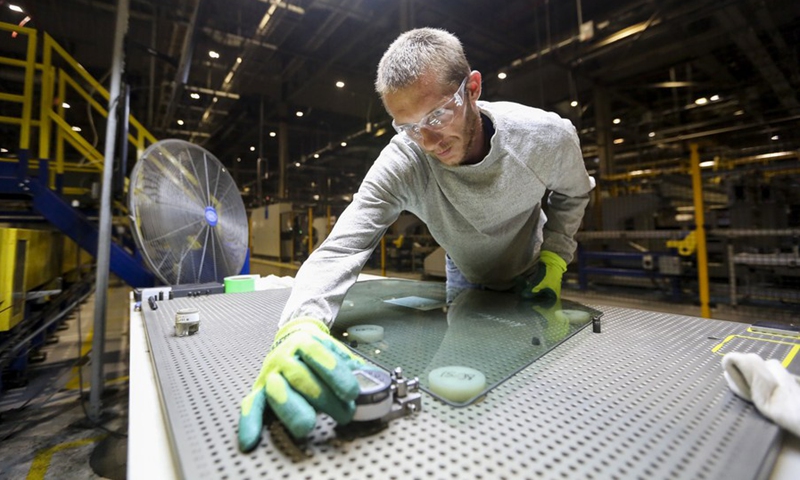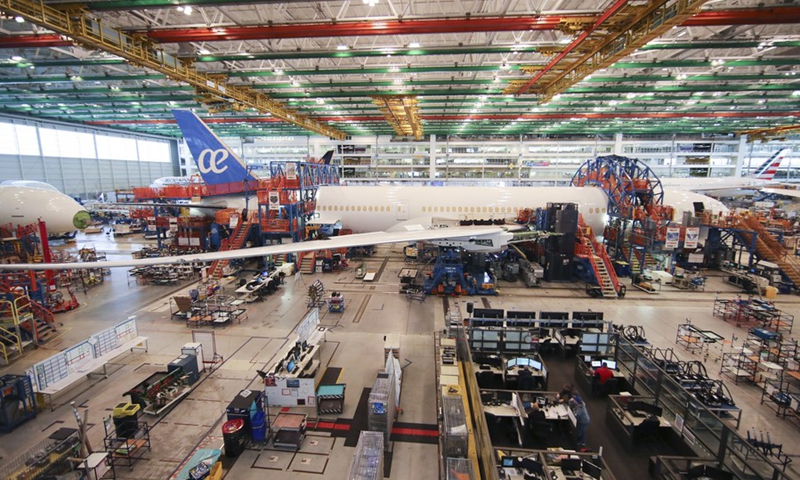U.S. manufacturing sector expands at faster pace in August despite Delta surge, hiring difficulty

A worker does quality inspection at the Fuyao Glass America (FGA) facility in Moraine of Dayton in Ohio, the United States, Aug. 21, 2018.(Photo: Xinhua)

Photo taken on Jan. 26, 2018 shows interior of the final assembly building in Boeing South Carolina in North Charleston, South Carolina of the United States.(Photo: Xinhua)
The U.S. manufacturing sector expanded at a faster pace in August despite a Delta variant-fueled COVID-19 surge and hiring difficulty, the Institute for Supply Management (ISM) reported Wednesday.
The Purchasing Managers' Index (PMI) stood at 59.9 percent, up 0.4 percentage point from the July reading. Any reading above 50 percent indicates the manufacturing sector is generally expanding.
The manufacturing sector saw slower growth in July from the prior month, as companies and suppliers continued to struggle to meet increasing levels of demand.
The supply-chain constraints persisted in August. The Backlog of Orders Index registered 68.2 percent, 3.2 percentage points higher than the July reading, according to the ISM.
The Employment Index, meanwhile, indicated contraction at 49 percent, 3.9 percentage points lower compared to the July reading.
"All segments of the manufacturing economy are impacted by record-long raw-materials lead times, continued shortages of critical basic materials, rising commodities prices and difficulties in transporting products," said Timothy Fiore, chair of the ISM's manufacturing business survey committee.
The new surges of COVID-19, he noted, are adding to pandemic-related issues - worker absenteeism, short-term shutdowns due to parts shortages, difficulties in filling open positions and overseas supply chain problems, which continue to limit manufacturing-growth potential.
Optimistic panel sentiment, however, remained strong, with eight positive comments for every cautious comment, Fiore added.
Tim Quinlan, senior economist at Wells Fargo Securities, wrote in an analysis that the latest ISM survey showed that the defining challenges of the COVID-19 era improved in August.
"Wait times are shortening, inventories are being rebuilt and orders remain strong," he said.
Quinlan, however, highlighted "one clear exception": businesses cannot find the people to do the work in the nation's factories.
